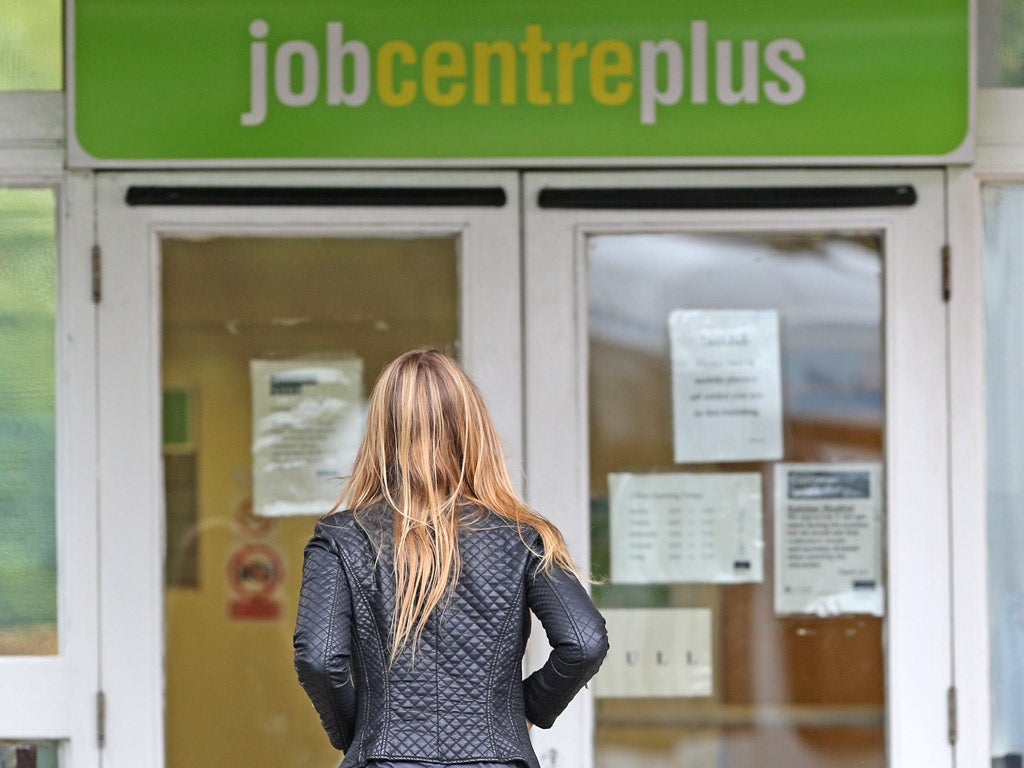The jobs figures may well add up, but they’re no use to anyone
Outlook

To the average Briton, the figures produced by the Office for National Statistics on jobs probably matter more than any other economic data. They indicate how easy it might be to get a job for those who don’t have one (or are in the process of losing the one they do have). They provide an indication on how secure an existing job might be. And there’s also information on pay, and how quickly it is rising. Don’t ever underestimate that one.
The latest release apparently gave people lots to be cheerful about (and the Chancellor lots to gloat about). It indicated that the labour market continues to be tight with unemployment low, and plenty of jobs about for those on the hunt. The total number of vacancies (768,000) outstripped the number of people claiming unemployment benefits (716,700) by a considerable amount. Pay growth remained sluggish (2.2 per cent) but that still represents a real term increase.
But wait just a moment. The jobs data supplied by the ONS represents a massively lagging economic indicator. Yes the headline figure showed unemployment falling by 28,000 to 1.68 million. But it covered the period between November and January. We are now half-way through March.
The ONS would probably at this point like me to tell you about how comprehensive its survey to produce the information I referred to is, and the statistical value of its three-month rolling averages and so on. Blah, blah.
The trouble is that such dated data is all but useless from an economic policy standpoint. It provides a wonderfully researched picture of what was going on several weeks ago. With the emphasis on was. Other countries manage to produce rather more current figures, which they go on to revise as necessary. Just not our ONS.
Which leaves us to delve around in the figures for hints and trends that might tell us what is going on now. These are rather less encouraging than you might think.
James Knightley, an economist at ING, points to those vacancies I mentioned. The number actually fell by 10,000. That may offer an early hint of an EU referendum-induced slowdown in hiring, as companies sit on their hands ahead of it.
The number could, of course, pick up if the UK stays in the EU. But given the other economic risks the Chancellor has been highlighting, there is no guarantee of this.
Of course we don’t know for sure. There’s an element of guesswork, conjecture and not a small amount of opinion at work in my drawing that conclusion. As the British public weighs up what will be a historically important decision, the economic data on the subject that is closest to the hearts of almost anyone of working age is basically worthless to them. Is that really acceptable?
Business news: In pictures
Show all 13Don’t bet on the LSE deal until it’s done
The London Stock Exchange’s Deutsche deal is closing in on the last couple of fences. The large part of the City spending at least part of this week watching horses jump real obstacles in the Cotswolds rather than metaphorical ones back in London will tell you that doesn’t mean much. You should only start to count your winnings when your fancy is past the finish line.
Of most concern to this horse is the obstacle named “Brexit”. It could induce a crunching fall. The one called “regulation” should be easier to clear. All that spin about “European capital markets solutions” to compete with American and Far Eastern rivals is well pitched. It’s like a horse-box full of sugar lumps to the stable boys in Brussels. Even if this deal is far more about the plumbing than it is any capital markets “solution”; the bolting together of the two exchanges’ clearing houses which are supposed to ensure that trades in all sorts of financial instruments go through during times of stress.
The odds are probably better than evens that an American runner (and perhaps two) will mount a challenge on the run in. The LSE remains a unique opportunity for its clearing business, its exchange and more besides. The “regulation” will be higher for InterContinental Exchange, which has another couple of weeks to declare its hand. Just breaking up the carefully constructed deal that on the table might make taking a tilt worthwhile.
Even if ICE (or the Chicago Mercantile Exchange) stays in the stable, this race could yet spring a surprise. Take the merged entity’s proposed boss, Carsten Kengeter. This week it emerged that he was temporarily listed as a possible co-conspirator with jailed Libor fixer Tom Hayes in a Serious Fraud Office document. It should be noted that UBS has said there are no grounds for accusing Mr Kengeter of any wrongdoing (and no regulator has). But it certainly makes the ride up the hill look bumpy. Quite entertaining for those in the stands, mind. Ladies and gentlemen, place your bets, please.
Subscribe to Independent Premium to bookmark this article
Want to bookmark your favourite articles and stories to read or reference later? Start your Independent Premium subscription today.

Join our commenting forum
Join thought-provoking conversations, follow other Independent readers and see their replies